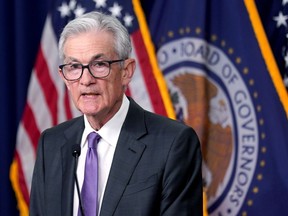The Case for Supporting Entrepreneurs in Canada: A Path to Economic Growth
In an article titled "Canada Must Put Entrepreneurs First to Get the Stagnating Economy Back on Track," the author critiques Canada’s current economic policies, arguing that they are hindering entrepreneurial success and stymying economic growth. The piece draws parallels between Canada’s business climate and other countries like the United States, highlighting several key concerns.
Firstly, the author points out that many successful entrepreneurs, such as Bill Gates, Larry Ellison, Jeff Bezos, and even Mark Zuckerberg, have chosen to start their enterprises in the U.S., particularly due to its more favorable environment for innovation and risk-taking. This comparison underscores the potential economic benefits Canada could achieve by retaining these individuals.
Secondly, the article addresses the lack of a robust public capital market in Canada, with minimal IPO activity and a significant decline in venture capital deals over recent years. The reduction from 843 deals worth $15.5 billion in 2021 to just $3.6 billion in 279 deals by early 2024 is alarming. This trend discourages new companies from seeking investment, stifling innovation and economic development.
Thirdly, the author mentions the government’s new tax regime, which increases the effective tax rate by 33%. This change discourages risk-taking and investment, creating an environment where entrepreneurs are less inclined to pursue ventures that could yield high returns. The impact of this policy on the startup ecosystem is significant, as it directly affects funding opportunities for potential businesses.
The article also calls attention to Thomas S. Caldwell’s perspective, suggesting that if Canada had nurtured more entrepreneurs who had left the country to start businesses in the U.S., Canada might have become one of the wealthiest nations. This statement serves as a wake-up call for policymakers, emphasizing the importance of supporting these individuals within their home country.
Furthermore, the piece discusses the challenges faced by young Canadians and recent graduates in finding employment, as well as small businesses struggling to secure carbon rebates under new regulations. These issues highlight broader societal impacts on economic stability and innovation.
In conclusion, the author advocates for a shift in Canada’s policies to better support its entrepreneurs. By addressing the lack of incentives, improving market access, and encouraging risk-taking, the country can unlock the full potential of its entrepreneurial community, leading to sustainable and thriving economic growth. The author closes by suggesting that leaders like Thomas S. Caldwell should consider these insights when formulating strategies for national development.
This critique serves as a compelling argument for why Canada needs to rethink its approach to entrepreneurship, ensuring that it can harness the talents of its successful citizens who are currently driving innovation elsewhere. By doing so, Canada could avoid unnecessary stagnation and lay the foundation for future economic prosperity.










